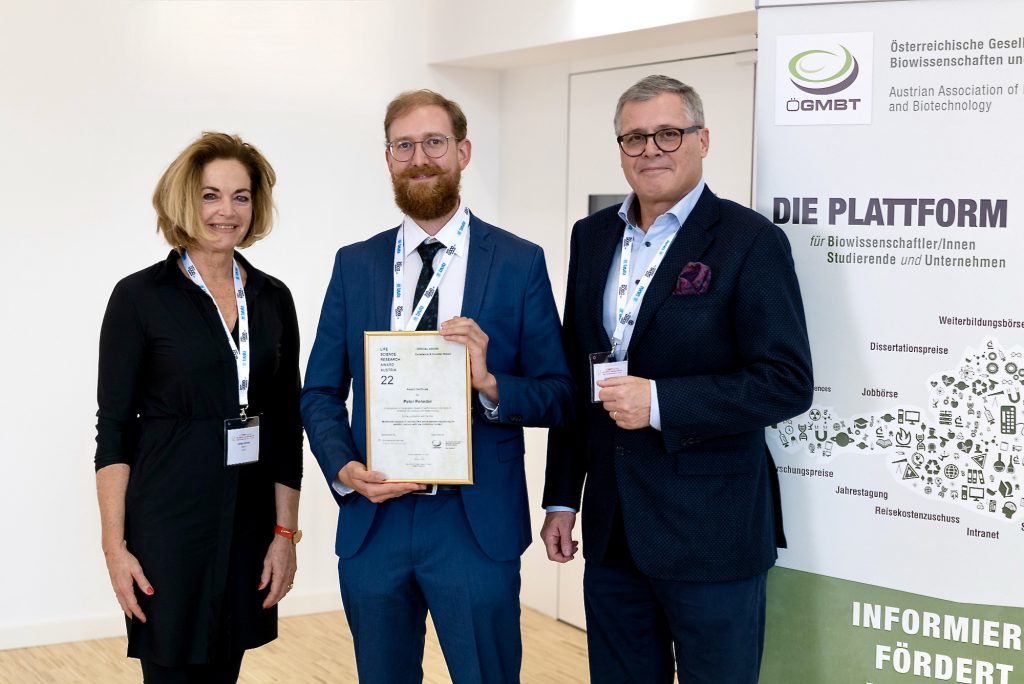St. Anna CCRI epigenetics researcher Peter Peneder wins ÖGMBT-award!
(Vienna, 20.09.2022) Well done! First place at the Life Science Research Awards Austria 2022 in the category Excellence and Societal Impact – Peter Peneder from Dr. Eleni Tomazou´s tumor epigenetics research group at St. Anna CCRI convinced the jury of the Austrian Society for Molecular Biosciences and Biotechnology (ÖGMBT) with his outstanding publication “Multimodal analysis of cell-free DNA whole-genome sequencing for pediatric cancers with low mutational burden”. Congratulations!
“In the award-winning study, published in Nature Communications, we exploited the characteristic epigenetic signatures of childhood tumors to detect, classify and monitor the disease. Our new approach could be used as a prognostic marker, monitoring which patients respond to therapy. This could improve personalized diagnostics and potentially future therapies for childhood tumors such as Ewing’s sarcoma”, Peneder explains.
He adds, “I feel very honored that our study has won! I think it’s a really exciting project that shows the value of combining new biological insights with suitable computational methods, and it’s great to see that others share this excitement!”
The official award ceremony took place during the 14th Annual Meeting of the ÖGMBT on Monday, September 19. The award is supported by the Austrian Federal Ministry for Digital and Economic Affairs.

Go to publication: https://doi.org/10.1038/s41467-021-23445-w
About Peter Peneder:
Peter Peneder did his bachelor’s in microbiology and genetics at the University of Vienna, before switching to bioinformatics for his master’s. After an exchange semester at the University of Amsterdam, where he worked on finding novel B- and T-cell receptor alleles, he joined the Tomazou lab at the St. Anna Children’s Cancer Research Institute, initially for his master thesis. Now a PhD student, Peter is developing and applying bioinformatic methods and machine learning approaches to learn more about how pediatric cancers arise and how to use liquid biopsies to improve their identification, detection, and monitoring. Peter is especially interested in fragmentomics, machine learning, and computational methods for single-cell data analysis. Now, he has just returned from a half-year long research visit at the Marioni lab at the European Bioinformatics Institute and the Cancer Research UK Cambridge Institute.
About the research group:
https://ccri.at/research-group/eleni-tomazou-group/
https://www.tomazoulab.org/